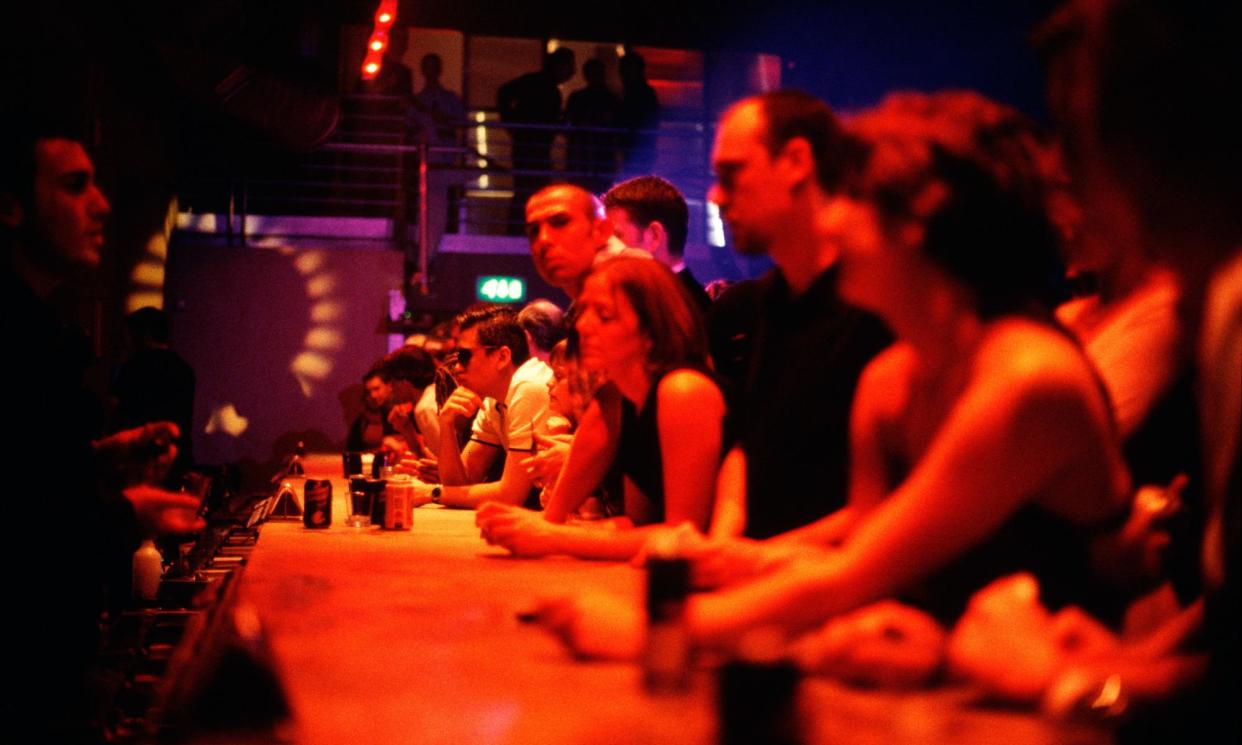‘I know my limit’: how gen Z became Britain’s ‘sober-curious’ generation

A recent World Health Organization (WHO) study found Great Britain has the worst rate of child alcohol consumption in the world – with more than half of children in England, Scotland and Wales having drunk alcohol by the age of 13.
Yet this is coupled with a growing move towards sobriety among young people. Alcohol education charity Drinkaware found that, as of 2021, young adults were the most likely to not drink alcohol, at 28%, whereas older adults were the least likely, at 15%.
Glyn Preston, 24, Llanidloes
Preston used to binge drink occasionally while at university. “It was Covid, so there were lots of evenings where we were trying to be careful about who we socialised with,” he says.
“I would drink at my house, and sometimes by myself in the evening. It was easy to turn to alcohol to get a few laughs [with housemates]. I think there’s a big culture of binge drinking at universities in the UK.”
Preston, who had his first alcoholic drink at around 13, now enjoys drinking socially and says he has a “healthy relationship” with alcohol.
“I probably drink about three times a week – all in the pub, and not at home unless I’m having people over for dinner. I generally drink pale ale, craft beers, or Guinness. Occasionally I’ll drink wine, though.”
Since leaving university in Birmingham, Preston has moved back to his home town of Llanidloes in mid-Wales. As well as just getting older and starting full-time work, he also credits the town’s multi-generational demographic with his changed social and drinking habits. Fun conversations while having a drink with people are what he enjoys most. “It’s a small community … the pub is often a social hub,” he explains.
Niamh Donnelly, 21, Newcastle
Donnelly describes herself as “sober-curious” and has cut back on drinking while at university.
“I have stopped drinking with the intention of getting drunk and can enjoy a casual drink without feeling the need to go overboard,” she says.
Donnelly, who had her first alcoholic drink at 14, has been on a few nights out where she has either not drunk at all or had two or three drinks and not been drunk. “I surprised myself by having a really good time,” she says.
Figuring out her own limits and relationship with drinking took time. “It has taken me a couple of years to get to this point and I have found it difficult in the past, especially in my first year of university.
“It took me some time to recognise my limits and accept the drinking culture. At times I felt I wasn’t making the most of my uni experience if I wasn’t indulging in clubbing and drinking at least three to four times a week.
“Now that I have found a balance that works for me and I know my limits, I have much more enjoyable times and I don’t wake up with crippling hangovers and anxiety.”
Annie Davies, 25, Birmingham
Davies has been sober since the end of November 2022. She knew her party-heavy lifestyle was “unsustainable” for months before making the decision to stop drinking. “I knew drinking was impacting on my mental health but I almost took on that lifestyle as a personality trait,” she explains.
She said that prior to going sober, she would drink several nights a week. “I was always the last person out, staying out with strangers if my friend group went home.
“I didn’t really know who I was without it and I was scared to let that go. One day I was at a gig at a pub, I didn’t drink … the band I went to see had taken a lot of drugs - I felt so triggered I had to leave. [When I woke up for] work hangover-free and feeling like I could actually process my emotions from feeling triggered, I said to myself ‘I’m stopping drinking’ and that was it.”
Davies makes videos on TikTok about being sober. She shares videos of trips to pubs and bars which sell alcohol-free options and ideas for alternative days and evenings out which don’t revolve around drinking.
She says her TikTok account “started off as mostly accountability but now I try to share positives of sobriety, that it doesn’t mean you are boring”.

 Yahoo News
Yahoo News 
